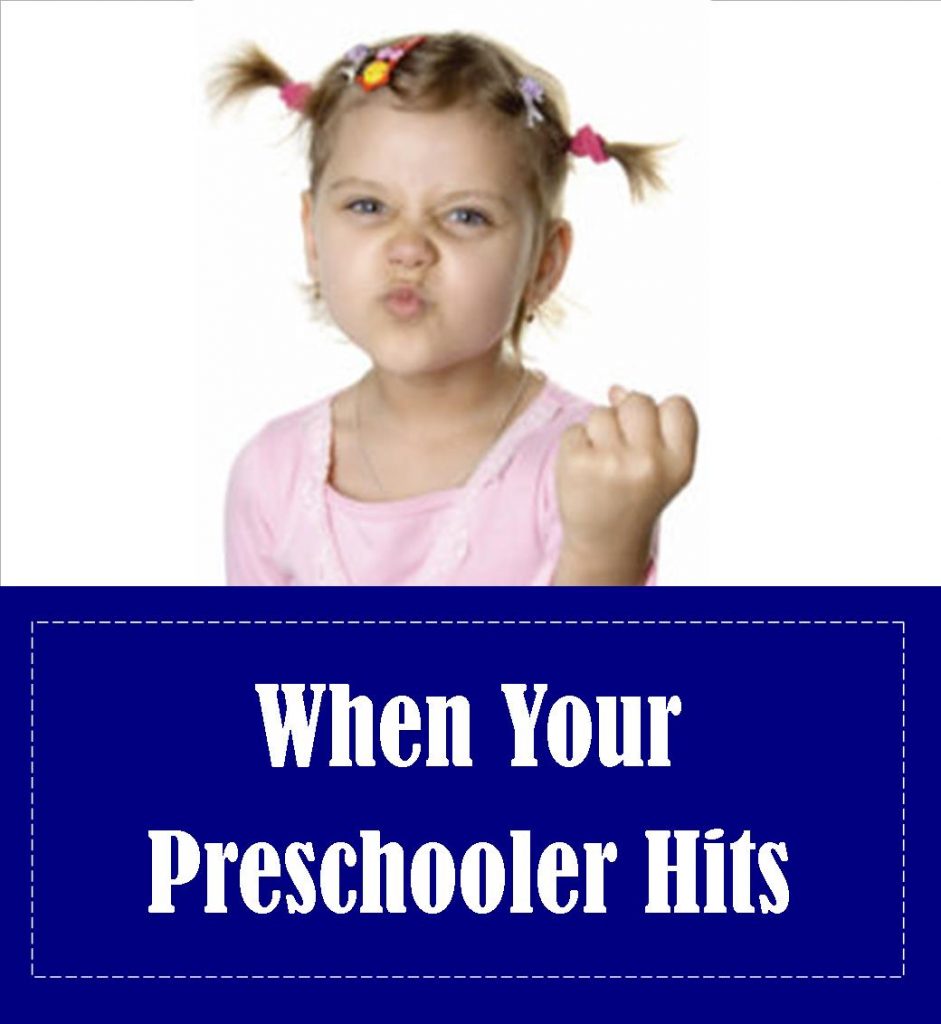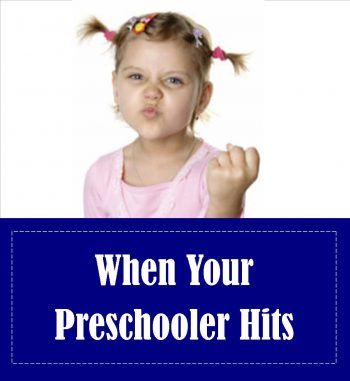
Hitting is a common problem in the preschool years. Kids at this age are interested in playing with others, but they lack the emotional control and social skills necessary to handle their frustration very well. Catholic parents want to raise their children to be compassionate and loving, so what can we do about hitting? How can we prevent it from becoming a more serious problem in later childhood?
Rest assured, hitting is not a sign that your child is going to join a gang or become a bully. Hitting is usually a fight-or-flight reflex. We all have this reflex, but most older kids, teens, and adults have the capacity to “think again”: we have an impulse to lash out, but we have second thoughts. We realize that we care about the other person and that it would be wrong to hit, so we talk ourselves down and find a way out.
Little kids don’t have this capacity yet, but they can develop it. They usually just need a little support during these years in learning how to manage their impulses and big feelings.
Here are few things to keep in mind when you’re dealing with a Little Hitter:
Remember the Goal of Discipline
The goal in “disciplining” our children isn’t to control their behavior or to force them to comply with our wishes out of fear of punishment or abandonment. The goal is to help them mature, to help them develop the self-control and virtue necessary to make wise choices, even when we’re not around.
The word discipline comes from the Latin word “discipulus” which means pupil. The word “disciple” is a derived from the same Latin word. Our children are disciples who need guidance and teaching, not prisoners who need guarding.
More positive, gentle responses to hitting protect the trust between you and your child so you can shepherd her toward maturity.
Create Clear Expectations
Practicing gentle, positive discipline doesn’t mean we let our kids hurt others. We can create boundaries and have high expectations for behavior.
Before a problem occurs, at a time when your child is calm, have a talk about acceptable behavior and why hitting is not acceptable. Explore the virtues of patience and kindness together. You might read a book like No Hitting, Henry with your child, inviting discussion.
Ensure your child knows that you understand his frustrations and how hard it is to handle anger, and that you will help him deal with his feelings in a better way. But be clear with him that physically harming others is not okay.
When Hitting Happens
When your child hits or kicks another child, remove her immediately. Ensure the other child is okay. This shows the other child (and her parent if relevant) that you are concerned about her and what she experienced. It also models for your child empathy and compassion.
Then, view this as an opportunity to teach your child about the Christian virtues. What virtue was lacking in the situation your child was in? Begin to explain to him the importance of compassion, patience, mercy, and love. Help him see things from the perspective of the other child.
These are giant lessons that take most of us a lifetime to comprehend, but it’s not too early to begin evangelizing your child. You will repeat these lessons in virtue with increasing depth as your child matures. Require your child to make things right with the other child: an apology, a hug, or whatever seems appropriate to you.
Some gentle parenting experts advise against requiring children to apologize if they aren’t really sorry. I do understand their point. However, I’m simply helping my child practice his manners. I require the apology for the sake of the other child if anything.
Brainstorm Ways to Handle Anger
If your child hit another person out of anger or frustration, convey to her that these feelings are very natural. Everybody feels angry and frustrated sometimes. Share some times when you felt this way. However, even when we have big feelings, we can make wise choices.
When your child is feeling calm, brainstorm what she might do the next time she is feeling angry or frustrated. Ideas: talking to a parent, sitting in a safe cool-off spot, jumping on a trampoline, throwing a ball, tearing up paper, drawing. You’re coming up with outlets for your child’s emotional energy, and what these look like depend on your child.
Explain Consequences for Hitting
If she’s old enough to understand “consequences,” explain to your child what the consequence will be for hitting in the future. Do this after a hitting incident when she has calmed down. Some people do time-outs, others do “time-ins” (sitting quietly with Mom or Dad until the child calms down).
Consequences should be logical. Being hit as a consequence for hitting somebody is not logical. A logical consequence for hitting may be the loss of play date privileges for a few days so that you can play one-on-one with your child to teach her how to handle her anger and frustration. This shouldn’t feel like a punishment, but as a problem solving measure to help her when she is feeling out of control.
If you have to impose the consequence after a hitting incident, ensure that you follow up by explaining to your child what alternative way she might have handled the problem.
Consequences are not necessary when the hitting was an accident. Know, too, that sometimes kids get ramped up when they’re rough-and-tumble playing. That emotional energy can lead to reflexive hitting; it’s not something your kids are doing out of anger. Wrestling and rough-and-tumble play are very healthy for kids, but pay attention to what’s going on. If the kids are getting rowdy and out of control, tame the room before arms and fists start flying. Have them take a breather.
Consider Limiting Playdates
If hitting is a persistent problem and you’re stressed out any time your child is around others kids for fear of an incident, know that playdates in the preschool years are not necessary in order for your child to develop his social skills.
Contrary to popular opinion, the source if healthy socialization isn’t other kids, but you, his mom or dad. View playdates as an opportunity to practice those social skills. If it’s affecting your child’s well-being, just limit or even eliminate playdates for a while. Spend time enjoying your child’s company and playing with him! These years go fast!

